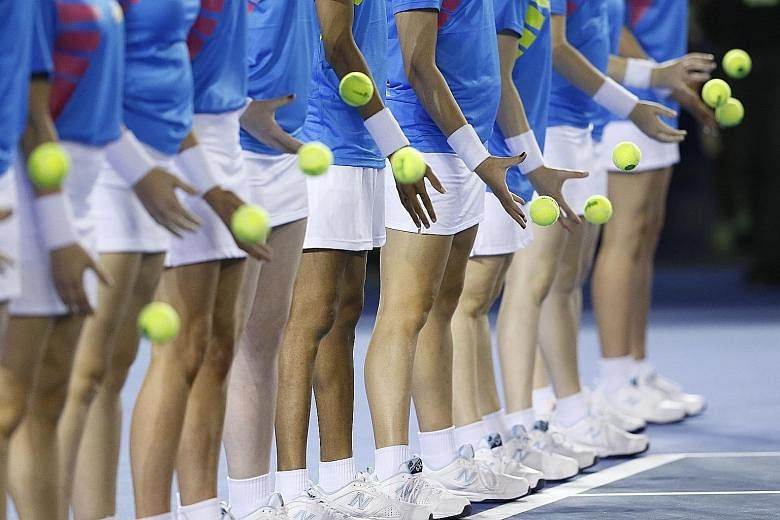MELBOURNE • Bombshell reports alleging widespread corruption in tennis cast a shadow over the start of the Australian Open yesterday, as officials vigorously denied suppressing evidence of match-fixing.
The BBC and BuzzFeed reported that a "core group" of 16 players who reached the top 50 in the past decade, including Grand Slam title winners, had repeatedly caused suspicion but never faced action.
The claims, citing a leaked cache of secret files, broke as the year's first Grand Slam got under way in Melbourne, and prompted a swift response from tennis officials.
As speculation swirled over the identities of the players under suspicion - eight of whom are reportedly in Melbourne - world No. 1 Novak Djokovic said he was once approached to fix a match.
ATP, which runs the men's tour, and the sport's anti-corruption body, the Tennis Integrity Unit (TIU), as well as Tennis Australia firmly rejected suggestions that any evidence was deliberately suppressed. "The Tennis Integrity Unit and the tennis authorities absolutely reject any suggestion that evidence of match-fixing has been suppressed for any reason or isn't being thoroughly investigated," ATP chief Chris Kermode said.
"And while the BBC and BuzzFeed reports mainly refer to events from about 10 years ago, we will investigate any new information, and we always do."
The leaked files include details of an investigation into a 2007 match between Nikolay Davydenko and Martin Vassallo Arguello, which found insufficient evidence of corrupt practice.
The reports said the probe uncovered syndicates in Russia and Italy making hundreds of thousands of US dollars betting on matches investigators thought to be fixed.
The key group of 16 suspect players had not been targeted in any crackdown, it said, questioning the effectiveness of the TIU.
Mr Kermode said the TIU had won 18 convictions, including six life bans, since it was set up in 2008, adding that it "has to find evidence as opposed to information, suspicion, or hearsay".
BuzzFeed said players were targeted in hotel rooms at major tournaments and offered US$50,000 (S$72,000) or more to fix matches for the betting syndicates.
One player who is competing in the Australian Open is suspected of repeatedly fixing his first set.
Investigators believe several matches in major tournaments were fixed, including three at Wimbledon and at the French Open. Other allegations included a confidential report in 2008 that recommended investigations into 28 players, but the findings were not followed up, apparently on legal advice.
Mr Mark Phillips, one of the investigators, said: "They could have got rid of a network of players that would have almost completely cleaned the sport up. We gave them everything tied up with a nice pink bow on top and they took no action at all."
Mr Nigel Willerton, who leads the TIU, said no action was taken against the players because a new anti-corruption code was established in 2009, and legal advice suggested that previous offences could not be pursued retrospectively.
"As a result, no new investigations into any of the players who were mentioned in the 2008 report were opened," he said.
The two news organisations did not name the players, saying that proving a link between the gamblers and players would require access to phone, bank or computer records.
However, the tennis authorities have been warned that at least nine of the players who escaped further investigation have continued to play in suspicious matches even after the new code took effect.
In the Buzzfeed report, one of the investigators said: "It is quite clear from the results of my analysis that the ATP, and to a much lesser degree the WTA (the body that runs women's tennis), have a problem with their players 'throwing' matches."
AGENCE FRANCE-PRESSE, THE TIMES, LONDON
SEE SPORT

